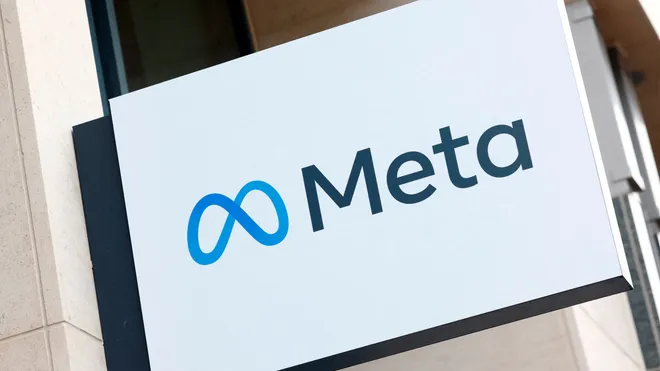The technology industry is known for its rapid growth, innovation, and sometimes, drastic workforce changes. One of the most significant events in recent years has been the layoffs at Meta, the parent company of Facebook, Instagram, and WhatsApp. As a tech giant with a dominant presence in social media and virtual reality, Meta’s workforce reductions have raised critical questions about corporate restructuring, economic conditions, and the future of the technology sector. This article explores the reasons behind the meta layoff, their impact on employees and the industry, and what this means for the future of Meta and the broader tech landscape.
Background: Meta’s Evolution and Expansion
Meta, formerly known as Facebook, was founded in 2004 by Mark Zuckerberg and his college roommates at Harvard University. Over the years, the company expanded rapidly, acquiring Instagram, WhatsApp, and Oculus VR to strengthen its dominance in social media and virtual reality. In 2021, Facebook rebranded itself as Meta to reflect its ambitious vision of building the metaverse—a digital world powered by augmented reality (AR) and virtual reality (VR).
During its growth phase, Meta aggressively hired top talent, expanding its workforce significantly to support new projects and business initiatives. However, as economic conditions shifted and financial pressures increased, the company found itself needing to reevaluate its workforce and business priorities. This ultimately led to one of the most significant rounds of layoffs in the company’s history.
The Reasons Behind the Meta Layoff
Several factors contributed to the decision to reduce Meta’s workforce, including economic downturns, declining ad revenue, overexpansion, and shifting business strategies. Understanding these reasons helps paint a clearer picture of why such drastic measures were necessary.
1. Economic Uncertainty and Recession Fears
The global economy has faced significant challenges in recent years, including inflation, interest rate hikes, and fears of a recession. These economic conditions created a difficult environment for tech companies that rely on advertising revenue, investor confidence, and consumer spending.
For Meta, a slowing economy meant advertisers were cutting back on their marketing budgets, leading to declining ad revenues. Since advertising is the primary source of income for Meta’s platforms, any significant reduction in ad spending directly impacts the company’s financial health.
2. Declining Ad Revenue and Changing Digital Advertising Trends
Meta generates the majority of its revenue from digital advertising. However, recent trends have shown a shift in how companies allocate their ad budgets. Apple’s privacy changes, introduced through its iOS 14 update, significantly affected Meta’s ability to track user data for targeted ads. This resulted in lower ad efficiency, leading many advertisers to explore alternative platforms.
Additionally, competition from platforms like TikTok and YouTube has intensified, with younger audiences spending more time on short-form video content. As advertising dollars shifted to other platforms, Meta faced revenue losses, forcing the company to make tough financial decisions, including layoffs.
3. Overexpansion and Overhiring During the Pandemic
The COVID-19 pandemic led to a surge in online activity, prompting tech companies to hire aggressively to meet increased demand. Meta was no exception, bringing in thousands of new employees to support its growth in e-commerce, digital communication, and metaverse development.
However, as the pandemic-era boom slowed and demand returned to pre-pandemic levels, Meta found itself with a bloated workforce. The company had expanded too quickly, and when revenue growth did not meet expectations, it had to downsize to maintain profitability.
4. The Costly Bet on the Metaverse
One of the most ambitious projects Meta has pursued is the development of the metaverse—a virtual world where users can interact through digital avatars. While the concept is revolutionary, it requires massive investments in research, development, and infrastructure.
Meta has poured billions of dollars into Reality Labs, the division responsible for its VR and AR initiatives. However, the metaverse has yet to generate significant returns, and many investors have expressed concerns about the financial sustainability of these projects. The company’s continued investment in the metaverse, despite uncertain profitability, has led to cost-cutting measures elsewhere, including layoffs.
The Impact of Meta’s Layoffs
The Meta layoff have had a ripple effect across the technology industry, affecting not only employees but also investors, industry trends, and corporate strategies.
1. Employee Impact: Job Losses and Uncertainty
Thousands of Meta employees were affected by the layoffs, spanning various departments, including engineering, marketing, and human resources. For many, losing a job at a high-profile tech company can be a devastating experience, especially given the competitive nature of the tech job market.
The layoffs also raised concerns about the well-being of employees who remained at the company. Those who survived the job cuts often faced increased workloads, job insecurity, and morale issues, leading to additional challenges in maintaining a positive work environment.
2. Industry-Wide Effects: A Tech Layoff Trend
Meta’s decision to lay off employees was not an isolated event. Other major tech companies, including Google, Amazon, Twitter, and Microsoft, also announced significant layoffs in response to economic pressures and changing business priorities.
This wave of layoffs signaled a shift in the tech industry’s hiring approach, moving from aggressive expansion to a more cautious and cost-conscious strategy. The trend also highlighted the volatility of the industry, where even the biggest tech giants are not immune to financial challenges.
3. Investor Reactions and Stock Performance
Investors closely monitored Meta’s layoffs and restructuring efforts, as they often view cost-cutting measures as a way to improve profitability. Following the layoffs, Meta’s stock price experienced fluctuations, with some investors optimistic about the company’s ability to streamline operations, while others remained skeptical about long-term growth prospects.
Meta’s leadership reassured shareholders that the layoffs were part of a broader plan to enhance efficiency and focus on core business areas. The company also emphasized its commitment to innovation in AI, VR, and digital advertising as key drivers of future growth.
The Future of Meta After the Layoffs
The layoffs marked a turning point for Meta, prompting questions about its future direction and business strategy. While the company continues to invest in the metaverse, it has also refocused its efforts on artificial intelligence (AI), advertising improvements, and product innovation.
1. Emphasis on AI and Machine Learning
Meta has acknowledged the growing importance of AI and machine learning in shaping the future of technology. The company has ramped up its efforts in AI research, including advancements in content moderation, recommendation algorithms, and virtual assistants.
By leveraging AI, Meta aims to enhance user experience across its platforms, optimize ad targeting, and develop new features that keep users engaged.
2. Strengthening Digital Advertising Strategies
Despite challenges in the advertising space, Meta remains committed to refining its ad products. The company is exploring new ways to offer advertisers better targeting options while addressing privacy concerns.
By adapting to changes in digital advertising, Meta hopes to regain lost revenue and maintain its leadership in the industry.
3. Continued Investment in the Metaverse
Despite skepticism about the metaverse’s financial viability, Meta has not abandoned its vision. The company believes that AR and VR will play a crucial role in the future of digital interaction, and it continues to develop hardware, software, and immersive experiences for the metaverse.
While progress has been slow, Meta’s long-term commitment suggests that it sees the metaverse as a foundational element of its future business model.
Conclusion
The Meta layoff was a significant event that underscored the challenges faced by tech companies in an evolving economic landscape. Factors such as declining ad revenue, economic uncertainty, overexpansion, and costly investments contributed to the decision to reduce the workforce. The impact of these layoffs extended beyond Meta, affecting employees, industry trends, and investor sentiment.
As Meta navigates its post-layoff future, the company is focusing on AI, advertising, and metaverse development to drive growth. While uncertainties remain, the strategic shifts made in response to financial pressures will shape the company’s trajectory in the years to come. The tech industry, as a whole, will continue to adapt, and Meta’s ability to innovate and remain competitive will determine its long-term success.
For more, continue to read more at newsmetre.com














